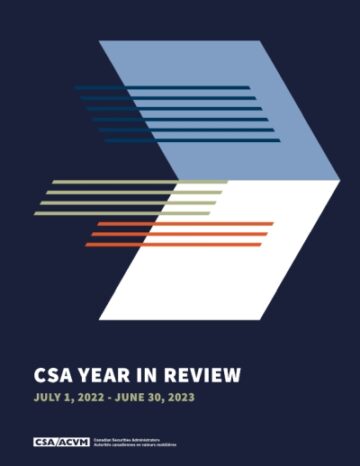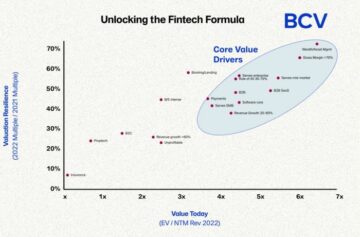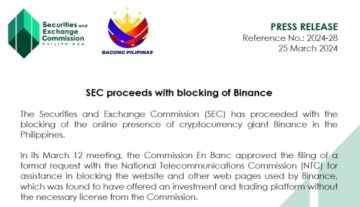Crypto Regulation | Sep 28, 2023

 Image: Unsplash/Charles Forerunner
Image: Unsplash/Charles ForerunnerEU’s MiCA framework sets a new standard in crypto regulation, as the UK and US navigate their unique challenges and the global community calls for coordinated oversight.
The European Union, with its groundbreaking MiCA framework has set a precedent. Meanwhile, the UK and the US are carving their unique paths. Drawing insights from a recent EU report, this article provides an update of the regulatory landscape across these jurisdictions, highlighting the challenges, opportunities, and global implications of their respective approaches to crypto-assets and stablecoins.
EU’s Regulatory Approach to Crypto-Assets
In 2023, the European Union introduced the innovative Markets in Crypto-assets (MiCA) framework, a comprehensive regulatory measure designed to oversee the burgeoning crypto-asset markets. The primary focus of MiCA is on stablecoins, ensuring that their value remains consistent with official currencies. This framework combines stringent transparency and governance measures with prudential rules similar to those applied to traditional financial institutions. The overarching aim of MiCA is to ensure better protection for citizens, maintain financial stability, and foster both innovation and financial inclusion in the crypto space.
UK and US
The United Kingdom has charted its own path in the crypto realm. With comprehensive crypto legislation in place, the UK is eyeing a status as a global ‘crypto hub‘. However, while the foundation is set, specific regulations and details have been deferred to national financial authorities.
See: The Federal Reserve Issues State Member Bank Guidance for ‘Dollar Tokens’ (Dollar-pegged Stablecoins)
The United States grapples with its own set of challenges. Crypto-assets in the US face a degree of legal ambiguity. They are primarily regulated as securities, leading to a cloud of uncertainty. This approach has sparked debates, with many advocating for more stringent and protective regulations.
Stablecoin Regulation by Country
| Jurisdiction | State of Regulation | |
|---|---|---|
| United States | Final legislation pending
Draft bills introduced in Congress; no committee progress. |
|
| United Kingdom | Final legislation pending Adopted in June 2023. |
|
| Australia | Process initiated/plans communicated | |
| Bahamas | Stablecoin regulation in place | |
| Canada | Final legislation pending | |
| Cayman Islands | Stablecoin regulation in place | |
| European Union | Stablecoin regulation in place MiCA adopted; to enter into force in 2024. |
|
| China (mainland) | Prohibition/ban | |
| Gibraltar | Stablecoin regulation in place | |
| Hong Kong | Final legislation pending | |
| Japan | Stablecoin regulation in place | |
| Mauritius | Stablecoin regulation in place | |
| Qatar | Prohibition/ban | |
| Saudi Arabia | Prohibition/ban | |
| Singapore | Final legislation pending | |
| South Africa | Final legislation pending | |
| Switzerland | Stablecoin regulation in place | |
| United Arab Emirates | Final legislation pending |
Source: Bank for International Settlements, “Crypto, tokens and DeFi: navigating the regulatory landscape, May 2023.”
Global Perspectives and the Road Ahead
Academics and global entities have raised the alarm about the potential of stablecoins to destabilize financial systems. In practical terms, these instability effects can manifest in various ways:
Individuals
- If stablecoins (pegged to traditional currencies or assets), fail to maintain their peg, individual investors could see a rapid devaluation of their holdings.
- In cases where stablecoin platforms face regulatory scrutiny or technical issues, might experience delays or restrictions in accessing their funds.
- Without transparent reporting, individuals might make investment decisions based on misleading information about the reserves backing a stablecoin.
See: Canadian Federal Regulators Issue Joint Statement on Crypto Assets | OSFI Publishes Digital Asset Roadmap
Organizations
- Businesses that rely on stablecoins for operations, such as payment processing or remittances, might face disruptions if the stablecoin they use becomes volatile.
- Companies associated with stablecoins that fail to maintain their peg or face regulatory issues might suffer reputational harm.
- Organizations might face higher costs to ensure they meet varying regulatory requirements across different jurisdictions.
Governments
- Widespread adoption of stablecoins might interfere with a country’s ability to implement effective monetary policy.
- If a widely-used stablecoin collapses, it could trigger a crisis in the broader financial system, similar to a bank run.
- Governments might lose some control over their financial systems if stablecoins, especially those issued by private entities, become dominant.
The concerns about fragmented global crypto regulations further exacerbate these potential issues. Without a unified approach to regulation, stablecoins could be subject to regulatory arbitrage, where issuers move operations to countries with laxer regulations. This could lead to a race to the bottom, with countries diluting regulations to attract crypto businesses.
See: The Federal Reserve Issues State Member Bank Guidance for ‘Dollar Tokens’ (Dollar-pegged Stablecoins)
However, the silver lining, as noted in the report, is that tighter regulation, such as that implemented by the EU, can have positive effects on the crypto market. It can increase investor confidence, reduce the chances of fraudulent schemes, and ensure that stablecoin issuers maintain adequate reserves.
While the EU’s actions are commendable, the global nature of crypto-assets means that international coordination is crucial. Without a harmonized approach, the benefits of individual regions’ regulations might be limited, underscoring the need for global cooperation to ensure the stability and integrity of the crypto market.
Download the 11 page PDF report –> here

 The National Crowdfunding & Fintech Association (NCFA Canada) is a financial innovation ecosystem that provides education, market intelligence, industry stewardship, networking and funding opportunities and services to thousands of community members and works closely with industry, government, partners and affiliates to create a vibrant and innovative fintech and funding industry in Canada. Decentralized and distributed, NCFA is engaged with global stakeholders and helps incubate projects and investment in fintech, alternative finance, crowdfunding, peer-to-peer finance, payments, digital assets and tokens, artificial intelligence, blockchain, cryptocurrency, regtech, and insurtech sectors. Join Canada’s Fintech & Funding Community today FREE! Or become a contributing member and get perks. For more information, please visit: www.ncfacanada.org
The National Crowdfunding & Fintech Association (NCFA Canada) is a financial innovation ecosystem that provides education, market intelligence, industry stewardship, networking and funding opportunities and services to thousands of community members and works closely with industry, government, partners and affiliates to create a vibrant and innovative fintech and funding industry in Canada. Decentralized and distributed, NCFA is engaged with global stakeholders and helps incubate projects and investment in fintech, alternative finance, crowdfunding, peer-to-peer finance, payments, digital assets and tokens, artificial intelligence, blockchain, cryptocurrency, regtech, and insurtech sectors. Join Canada’s Fintech & Funding Community today FREE! Or become a contributing member and get perks. For more information, please visit: www.ncfacanada.org
Related Posts
- SEO Powered Content & PR Distribution. Get Amplified Today.
- PlatoData.Network Vertical Generative Ai. Empower Yourself. Access Here.
- PlatoAiStream. Web3 Intelligence. Knowledge Amplified. Access Here.
- PlatoESG. Carbon, CleanTech, Energy, Environment, Solar, Waste Management. Access Here.
- PlatoHealth. Biotech and Clinical Trials Intelligence. Access Here.
- Source: https://ncfacanada.org/eu-report-crypto-outside-eu-impacts-on-the-union/
- :has
- :is
- :where
- 11
- 15%
- 150
- 19
- 200
- 2018
- 2022
- 2023
- 2024
- 28
- 300
- 32
- 33
- 9
- a
- ability
- About
- accessing
- across
- actions
- adopted
- Adoption
- advocating
- affiliates
- aim
- alternative
- alternative finance
- an
- and
- applied
- approach
- approaches
- Arab
- ARE
- article
- artificial
- artificial intelligence
- AS
- asset
- Assets
- associated
- attract
- Authorities
- backing
- Bank
- Bank for International Settlements
- Bank run
- based
- BE
- become
- becomes
- been
- benefits
- Better
- Bills
- bis
- blockchain
- both
- Bottom
- broader
- businesses
- by
- cache
- Calls
- CAN
- Canada
- Canadian
- cases
- challenges
- chances
- Charles
- Citizens
- closely
- Cloud
- Coindesk
- collapses
- combines
- coming
- commendable
- committee
- community
- comprehensive
- Concerns
- confidence
- Congress
- consistent
- cooperation
- coordinated
- coordination
- could
- countries
- country
- create
- Crowdfunding
- crypto
- crypto legislation
- Crypto Market
- Crypto regulation
- Crypto regulations
- crypto space
- crypto-assets
- cryptoasset
- cryptocurrency
- currencies
- Dark
- debates
- decentralized
- decisions
- Decoding
- DeFi
- DeFi revolution
- Degree
- designed
- details
- different
- digital
- Digital Asset
- Digital Assets
- disruptions
- distributed
- dominant
- drawing
- ecosystem
- Education
- Effective
- effects
- engaged
- ensure
- ensuring
- Enter
- entities
- especially
- Ether (ETH)
- EU
- Europa
- European
- european union
- exacerbate
- expectations
- experience
- Face
- FAIL
- Federal
- federal regulators
- federal reserve
- finance
- financial
- financial inclusion
- financial innovation
- Financial institutions
- financial stability
- financial system
- financial systems
- fintech
- Focus
- For
- Force
- Foster
- Foundation
- fragmented
- Framework
- fraudulent
- from
- funding
- funding opportunities
- further
- future
- get
- Global
- Global Crypto
- governance
- Government
- groundbreaking
- guidance
- Have
- helps
- High
- higher
- highlighting
- Holdings
- However
- HTTPS
- if
- image
- Impacts
- implement
- implemented
- implications
- in
- inclusion
- Increase
- individual
- individuals
- industry
- information
- Innovation
- innovative
- insights
- instability
- institutions
- Insurtech
- Intelligence
- interfere
- International
- international settlements
- into
- introduced
- investment
- investor
- Investors
- issue
- Issued
- issuers
- issues
- IT
- ITS
- Jan
- joint
- jpg
- judge
- July
- june
- jurisdictions
- Key
- Kingdom
- landscape
- lead
- leading
- Legislation
- light
- likely
- Limited
- lose
- mainland
- maintain
- make
- many
- Market
- Markets
- max-width
- May..
- means
- Meanwhile
- measure
- measures
- Meet
- member
- Members
- MiCA
- might
- more
- move
- National
- Nature
- Navigate
- navigating
- Need
- networking
- New
- no
- noted
- of
- official
- on
- Operations
- Opinion
- opportunities
- or
- outside
- over
- overarching
- oversee
- Oversight
- own
- page
- partners
- path
- payment
- payment processing
- payments
- peer to peer
- Peg
- pegged
- perks
- perspectives
- Place
- Platforms
- plato
- Plato Data Intelligence
- PlatoData
- please
- positive
- potential
- Powering
- Practical
- Precedent
- primarily
- primary
- private
- processing
- Progress
- projects
- protection
- Protective
- provides
- Prudential
- Publishes
- Race
- realm
- reduce
- regions
- Regtech
- regulated
- Regulation
- regulations
- Regulators
- regulatory
- regulatory landscape
- rely
- remains
- Remittances
- report
- Reporting
- Requirements
- Reserve
- reserves
- respective
- restrictions
- Revolution
- road
- roadmap
- Rule
- rules
- Run
- s
- schemes
- scrutiny
- Sectors
- Securities
- see
- Services
- set
- Sets
- Settlements
- similar
- some
- Space
- sparked
- specific
- Stability
- stablecoin
- Stablecoins
- stakeholders
- standard
- State
- Statement
- States
- Status
- Stewardship
- subject
- such
- system
- Systems
- Takeaways
- Technical
- terms
- that
- The
- the UK
- their
- These
- they
- this
- those
- thousands
- tighter
- to
- today
- Tokens
- traditional
- Transparency
- transparent
- travel
- Travel Rule
- Uk
- Uncertainty
- unified
- union
- unique
- United
- United Kingdom
- United States
- Unsplash
- Update
- us
- use
- value
- various
- varying
- vibrant
- Visit
- volatile
- ways
- What
- while
- with
- without
- works
- zephyrnet











